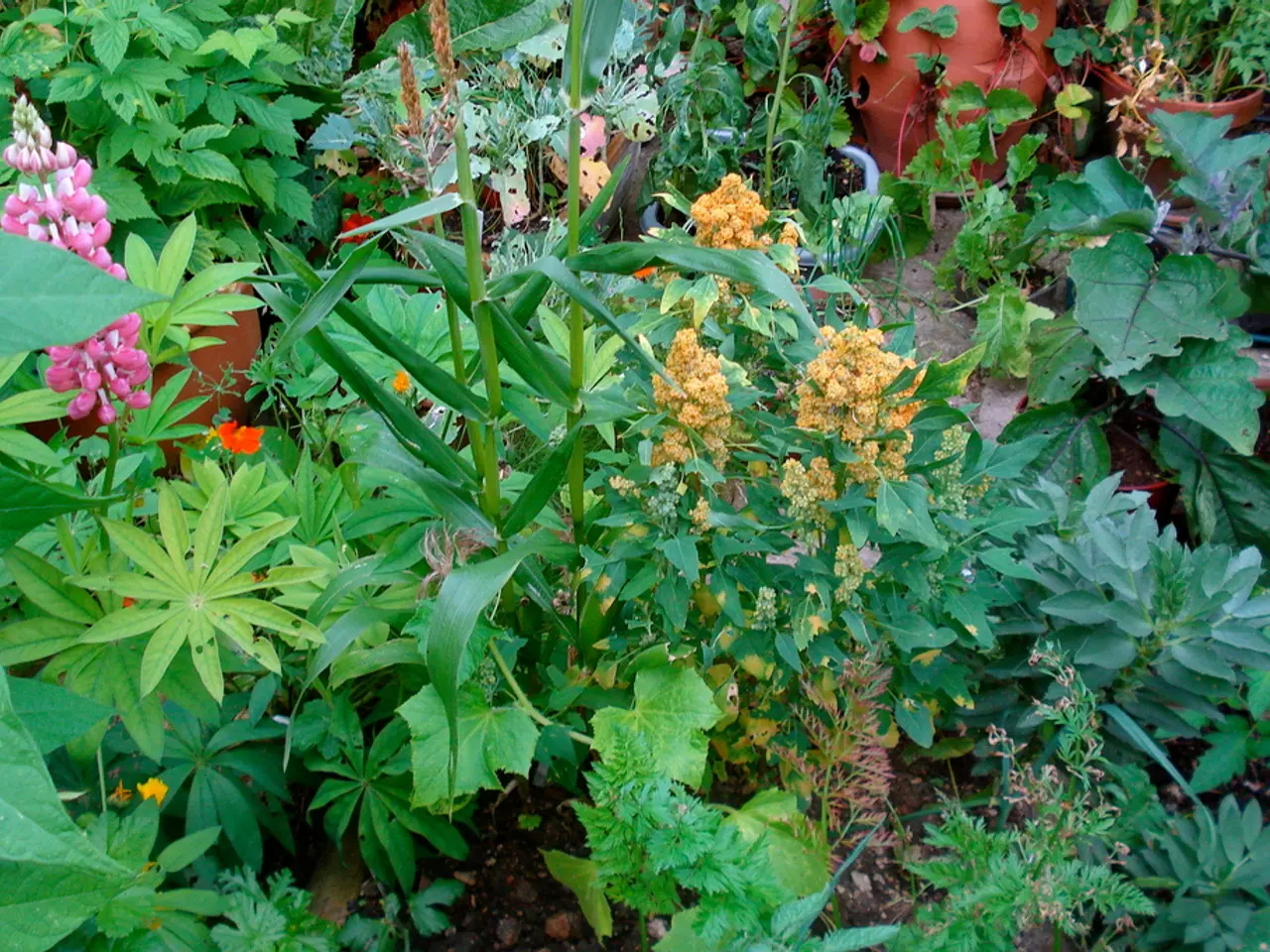Tough Flowers for Your Garden: Certain Perennials That Might Require Extra Care and Consideration
In the world of gardening, choosing the right perennials is crucial for a thriving and beautiful landscape. However, some plants can pose challenges due to their invasive nature, toxicity, or difficult-to-grow characteristics. Here's a guide to perennials that require extra care and consideration.
Firstly, invasive grasses such as pampas grass, Chinese silver grass, Mexican feather grass, fountaingrass, and cogongrass spread aggressively, potentially dominating gardens and displacing native plants. Giant reed grass and Butterfly Bush are also known for their invasive tendencies. In regions where these plants are known to spread aggressively, it's best to avoid them or opt for sterile cultivars.
Secondly, certain shrubs can present health risks. Monkshood, for instance, is among the most poisonous plants in the garden, containing aconitine. Extreme caution should be exercised when growing it, and gloves should be worn to prevent contact with skin. Poison hemlock and Castor bean are also highly toxic, with the latter containing ricin in its seeds.
Lily of the Valley is another perennial to be wary of due to its toxicity. Containing compounds known as convallatoxin and convalloside, accidental ingestion can lead to slowed heartbeat, collapse, and death. This plant is particularly dangerous in homes with children or pets. A less aggressive pink-flowering variety is sometimes recommended instead.
Bamboo, when planted in the ground, requires constant maintenance to prevent its escape into neighbouring flower beds or yards. Mint can also be difficult to contain and control, making it best to plant it in containers or sink its pots into the ground to manage root growth and spread.
Orchids and Azaleas are often recognised as among the most tricky perennials to grow due to their specific needs for growth and inability to rebloom unless conditions are met. Gardenias require consistent temperatures and should be positioned safely away from drafts or vents to thrive.
Established wisteria plants produce masses of elegant, draping flowers but require prevention of their spread, as well as deadheading and seasonal pruning. Japanese Honeysuckle is another vine that reseeds aggressively and spreads by the production of "runners" that sprawl across the ground and root easily.
Selecting perennials requires thought and consideration, including accounting for their growth habit, toxicity, continued care, and more. Fortunately, there are many low-maintenance perennials that are ideal for creating attractive, easy-care landscapes.
Lastly, it's important to remember that oleandrin, a compound found in oleander plants, directly affects the vascular system and heart, potentially leading to death. Correct handling is essential to prevent exposure, including using gloves to prevent contact with skin.
In summary, particular care should be taken with invasive grasses, certain shrubs, and toxic perennials, especially in regions where they are known to spread aggressively or pose health risks. Selecting sterile cultivars, native species, or less aggressive alternatives can mitigate many of these issues. Happy gardening!
Home-and-garden enthusiasts should approach lifestyle choices with caution when selecting perennials, as some invasive grasses, such as pampas grass and giant reed grass, can pose challenges due to their aggressive spreading nature. Additionally, certain toxic shrubs like Monkshood and Poison hemlock should be handled with extreme care, as they contain harmful substances like aconitine and ricin, respectively.




